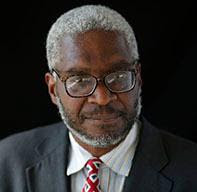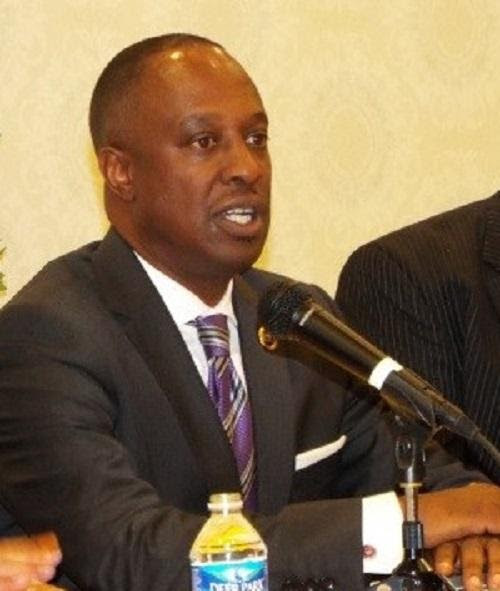According to the following statistics, the economic condition of America's Black community is in dire straits:
- A recent study by Harvard University found that homeownership in the Black community stands at only 42.2 percent in the nation's largest metro areas. That's below the Latino-American community, which is at 46 percent and well below the White-American community, which is at 72 percent.
- In addition, the mortgage denial rate for Blacks is more than 25 percent, near 20 percent for Latinos but just over 10 percent for White applicants, according to the Center for Enterprise Development.
- Likewise, the U.S. Black Chambers, Inc. says the lack of access to capital remains the greatest barrier to the establishment, expansion and growth of Black-owned businesses.
- Finally, Black-owned banks, which grant an overwhelming majority of their loans to Black people, continue to climb their way out of the disparate hit they took during the great recession while maintaining their historic role in stabilizing Black communities.
These revelations illustrating the economic struggles of African-Americans are the driving forces behind the founding of a new group that's leading a movement for Black economic justice across America. Black Wealth 2020, formally established only two years ago, aims to lock arms with some of the most historic national civic and civil rights organizations with a goal to impact economic outcomes in Black America over the next three years. The group's three-pronged strategy is to increase the number of Black homeowners, strengthen Black-owned businesses and increase deposits in Black banks by the year 2020.
Marie Johns, managing partner, Leftwich LL
"This is, in my recollection, the first time there's been a systematic effort to draw our community's attention to these very critical issues related to wealth-building and economic self-sufficiency. That being the importance of supporting Black banks, the importance of homeownership, the importance of growing Black businesses - those really are the three pillars of economic empowerment," says Marie Johns, former deputy administrator at the Small Business Administration and retired president of Verizon Washington, who is a member of Black Wealth 2020.
"If you have strong business ownership, strong home ownership and strong financial institutions, that's freedom. It's the closest proximity that we'll get," says Johns, also chair of the Howard University board of visitors and creator of SBA's Council on Underserved Communities.
In a nutshell, the seeds of Black Wealth 2020 were initially planted during a fight for economic justice. It started about seven years ago as several like-minded heads of organizations with economic components began regularly discussing the financial plight of Black people.
The group gelled after National Bankers Association President Michael Grant, National Association of Black-owned Broadcasters President Jim Winston and U.S. Black Chamber President Ron Busby joined forces with Congresswoman Maxine Waters (D-Calif.) to push for Black business inclusion in a proposed merger between Comcast and NBC Universal.

Michael Grant, National Bankers Assoc.
Winston had asked Waters, ranking Democrat on the House Financial Services Committee, to take action in the situation. Winston then pulled in Grant who pulled in Busby. The Comcast merger ultimately failed. But, "We decided to put together some kind of organizational team," recalls Grant, "So that whenever these issues come up, we'll have a united front and we'll have a lot of organizations. That's how Black Wealth 2020 was formed." The ultimate goal is to "turbo charge" Black wealth, Grant says.
While Black Wealth 2020 is uniquely economic, it aims to work alongside traditional civil rights organizations, including the National Urban League, the NAACP and others, Winston says.
Jim Winston, NABOB
"We have been concerned that for many years the Black civil rights movement had been the only national voice of the African-American community. Those groups do a great job but there are business and economic battles that the Black community has been fighting. And we don't believe that the Black community's voice has been strong enough and effective enough in that regard," says Winston. "And so we are able to strengthen each other in each other's activities as well as our collective voice for the Black community."
Other leaders in Black Wealth 2020 are HomeFree USA President Marcia Griffin; Zenviba Academy of Arts and Science President John Templeton; Collective Empowerment Group National President Dr. Jonathan Weaver; National Association of Real Estate Brokers President Ron Cooper; Enlightened: Beyond Expectations President Antwanye Ford; and Delta Sigma Theta President Dr. Paulette Walker. At latest count, the group has a total immediate reach of at least 3 million people.
Members of Black Wealth 2020 are quick to point to the historic roots of its economic goals. When Dr. Martin Luther King Jr. was assassinated on April 4, 1968, he had launched a "Poor People's Campaign," an economic justice movement that had begun in Memphis.

John Templeton, founder, National Black Business Month
John Templeton, founder of the now 14-year-old National Black Business Month in August, sees the work of Black Wealth 2020 as a continuum of Dr. King's vision. Templeton contends the prophecy spoken by King the night before his death must still come to fruition.
"King said he wasn't going to get to the promise land with us. But we as a people will get to the promise land. And people have forgotten that," Templeton says.

Ron Busby, USBC Inc.
Over the past 49 years since the assassination of Dr. King, other Black economic strategies have popped up and fizzled out. For this movement, Black Wealth 2020 members say the strategy for sustainability is built in, including the following elements: Black America's current state of affairs: "This current administration is going to force us to look internally because we don't have any help coming from outside our community," says USBC President Ron Busby. "It's not about one organization or about one individual leading the conversation, but once the mission was set and the three goals were established we can now go back to our collective constituencies and say this is what's important."
Youth involvement: National Bankers President Grant says the participation of youth is key. Black Wealth 2020 has begun incorporating and mentoring youth economic leaders in their monthly meetings. "In my study of history, going back to ancient times, I can't think of any major movement that was a societal changing movement that wasn't driven by the energy of youth," Grant says.
Shared Leadership: "In the past, movements have been tied to one individual. And as soon as there is some issue, and perhaps maybe death, often times what happens on the demise of that individual is the organization goes through a down spin and it in many instances ends up being discarded," says Dr. Jonathan Weaver.
Jonathan Weaver, Collective Empowerment Group; pastor, Greater Mount Nebo AME Church.
"As a result of this, there is no mindset or mentality among any of us that we want to be the one to be glorified or recognized as the so-called leader. That there is indeed shared leadership within this body and because we are so focused and so intentional about it, we really are just very resolute and determined to make this work."
Unique structure: The umbrella structure of Black Wealth 2020 also lends to unity, accountability and sustainability. "This is not just one organization, but this is a series of organizations that have come under one banner and will be about empowering Black people," Weaver says.
The urgent need for economic growth: "It's a fact that more than half of all African- Americans in our country rent. It's a fact that a homeowner's net worth is 36 times that of a renter. And it's a fact that the median income for an African-American household is $35,000 compared to the national average of $53,000," says Marcia Griffin of HomeFree USA. "This is an unacceptable situation for our people, and Black Wealth 2020 initiatives are critical in reversing these statistics and rebuilding wealth in the Black community."
Marcia Griffin, HomeFree USA
Clear and positive vision: "This is not an anti-White movement, this is not a reactionary movement. This is a very positive affirmation about Black love and Black support and it's an acceptance of full responsibility of our economic survival," says Grant.
Despite the name, representatives of the Black Wealth 2020 movement say they have vision well beyond only three years from now.
"One of our founders thought we should call ourselves Black Wealth 2020 and Beyond. While we were definitely in favor of that concept, we felt the name was a little cumbersome," Jim Winston chuckles. "So our goal, of course, is to continue beyond 2020. Building wealth in the African-American community is not an item that has a time line on it or a deadline on it...We just wanted to give ourselves a target where we can see some substantial improvements in that time frame."
 US Black Chambers, Inc.
The National Voice of Black Business
US Black Chambers, Inc.
The National Voice of Black Business